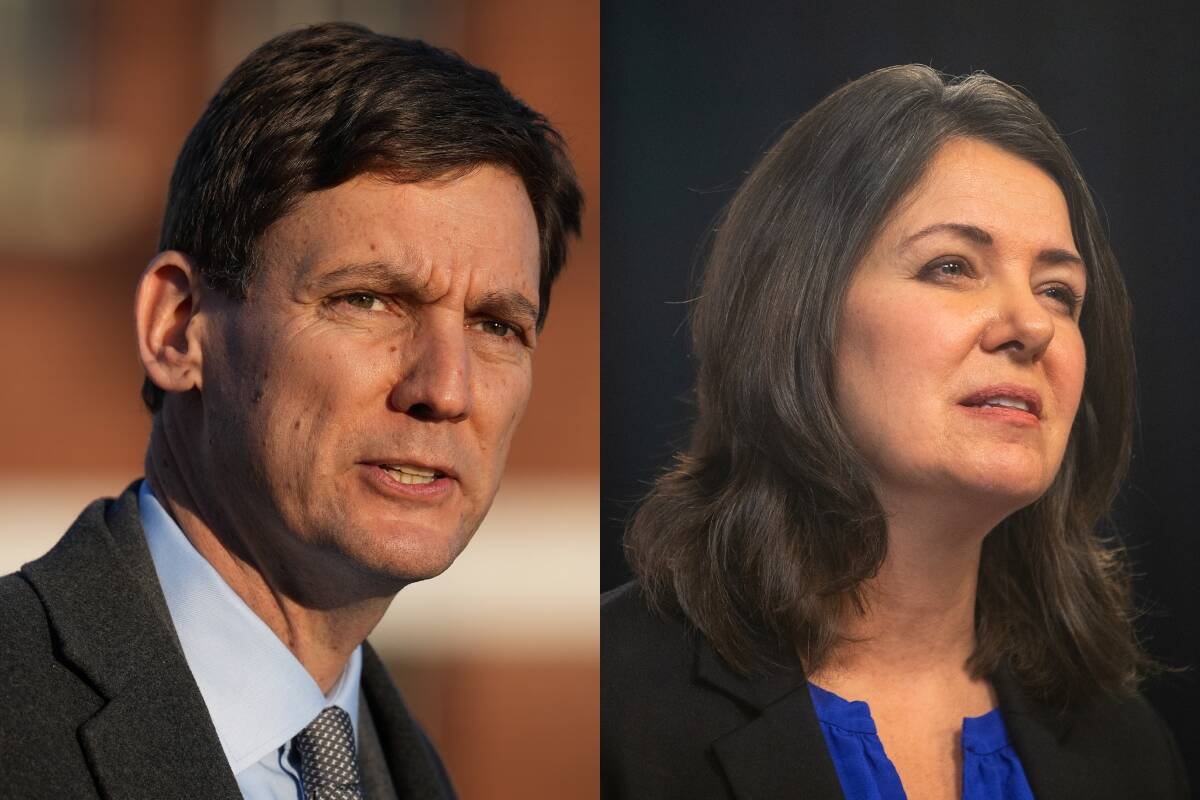Alberta and B.C. share a common border (one of the wildest most scenic places on earth), but according to common wisdom, not much else.
One province is a self-styled individualistic get-it-done place with low taxes, while the other is often called the left coast, where it is said any riding that touches water (and there are a lot of them) votes NDP or Green. Their economies are intertwined, but the two provinces actually share more than just trade and tourism opportunities and a common border.
As 2022 draws to a close, the political situation in both provinces is in a state of flux that is eerily similar in some ways. Elected premiers have been replaced by a relatively small number of party members, and general elections are on the near horizon. Alberta will vote in May 2023 and in B.C. it could happen anytime, but at most within the next 20 months.
In Alberta, Jason Kenney, the beleaguered leader of the United Conservative Party (a newly branded entity less than five years old), has been replaced by former talk show host and Wildrose Party leader Danielle Smith. Smith is finding out that the skill set required to be a radio host (saying whatever pops into your head and courting controversy at every turn) does not translate well into the role of provincial premier.
Another talk show host turned premier was B.C.’s Christy Clark, who relied more on charm than shock tactics to lead the BC Liberals to victory in two elections (2011-2017). Now the BC Liberal Party has decided, based on feedback from 8,000 party members, to change its name to BC United. Yes, just like the moniker for many soccer clubs. Their new leader, Kevin Falcon, has his work cut out for him to chip away at the NDP’s sizeable lead in public opinion, averaging around 15 percentage points in 2022.
Both provinces have new premiers and new parties, but they face some of the same challenges and they have surprisingly similar opportunities. The first challenge of the governing parties is branding of their new leaders. Fortunately, there are billions of dollars in opportunities that provincial surpluses in BC and Alberta present to each new leader.
NDP leader David Eby must fully introduce himself to British Columbia voters, without the benefit of a leadership contest after the party disqualified the only other challenger for the post. Announcing a $5-billion surplus is a good way to begin branding yourself as Premier, but it will be tough to fill the shoes of popular outgoing Premier John Horgan.
In Danielle Smith’s case, she also requires branding, after the ousting of disgraced UCP leader Jason Kenney.
It will help that the Alberta treasury is overflowing with cash from the oilsands, a windfall many decades in the making as the proportion of royalties paid to the province shifted upward. Smith requires re-branding, not an introduction, and the UCP needs to find a way to make her well-known qualities as a provocateur palatable to most Albertans.
It’s no wonder they keep trying to instigate a big fight with the federal government, whether it’s the new hastily drafted Sovereignty Act or taking a stand against prosecuting violators of new federal firearms legislation.
We may not think and vote the same way, but in 2023 B.C. and Alberta voters will see some of the same political forces playing out: operating surpluses will be generously deployed to cast their new premiers in a good light, in advance of provincial elections. A happy new year perhaps for pundits and strategists. But who knows, maybe the largesse will be spread around?
Bruce Cameron has been a pollster and strategist for over 35 years, working initially for Gallup Polls, Decima Research and the Angus Reid Group before founding his own consultancy, Return On Insight.

